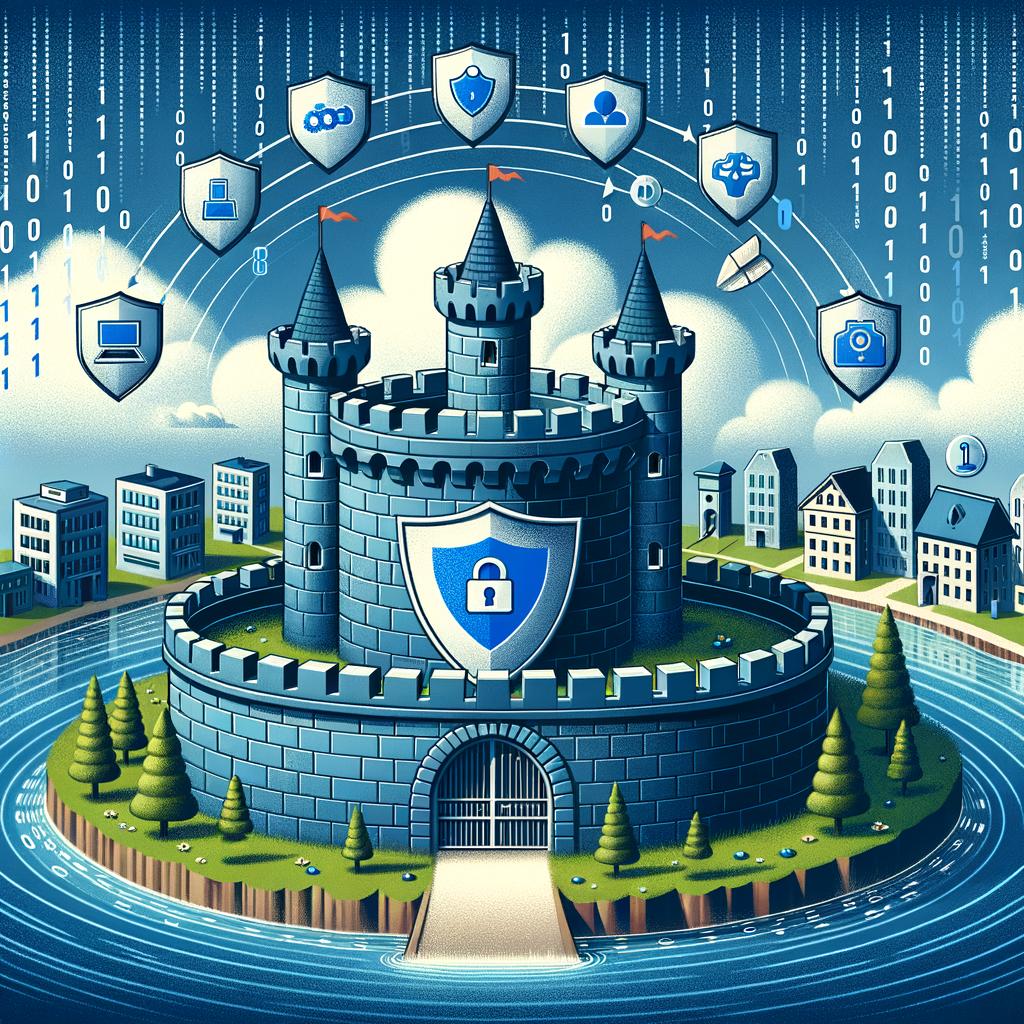PCI Compliance: What It Means and Why It Matters for Your Business
Step into the world of payment security as we crack the code on PCI compliance and uncover why it’s a game-changer for your business! Picture this: you’re casually strolling through the digital marketplace, credit card in hand, ready to make a purchase. But have you ever wondered what safeguards are in place to protect your precious payment details? That’s where PCI compliance struts in like a sassy security superhero, ready to shield your business from the hands of cyber attackers. So, grab your cape, hold on tight, and join us as we delve into the electrifying world of PCI compliance and discover why it’s an absolute must for your business survival.
Understanding PCI Compliance: Protecting Your Business and Customers’ Data
As a business owner, you may have heard the term “PCI Compliance” thrown around, but do you really understand what it means and why it matters? In a nutshell, PCI Compliance refers to the set of security standards established by the Payment Card Industry Security Standards Council (PCI SSC) to protect businesses and their customers’ data during credit card transactions.
Maintaining PCI Compliance is crucial for your business because it helps safeguard both your reputation and your customers’ sensitive information. If you’re not in compliance and a security breach occurs, the consequences can be devastating, such as the loss of customer trust, hefty fines, and even legal action. By adhering to these standards, you demonstrate your commitment to data security and establish a foundation for building trust with your customers.
Key Benefits of PCI Compliance:
- Protection against data breaches and potential financial loss
- Enhanced customer trust and confidence
- Compliance with industry regulations and requirements
- Reduced risk of penalties, fines, and legal consequences
How to Achieve PCI Compliance:
Achieving and maintaining PCI Compliance may seem like a daunting task, but it doesn’t have to be. Here are some steps you can take to ensure your business is meeting the necessary requirements:
- Understand the Scope: Determine which systems, processes, and personnel are involved in handling cardholder data.
- Assess Your Security: Conduct regular vulnerability scans and penetration tests to identify and address any weaknesses in your system.
- Create Secure Networks: Implement firewalls and other security measures to safeguard your network and protect against unauthorized access.
- Encrypt Cardholder Data: Utilize strong encryption methods to ensure that sensitive information is securely transmitted and stored.
- Maintain Monitoring and Testing: Continuously monitor your systems and perform regular checks to ensure ongoing compliance.
The Importance of PCI Compliance: Avoiding Costly Data Breaches and Legal Penalties
In today’s digital age, the security of customer information is of utmost importance. This is where PCI compliance comes into play. PCI compliance, which stands for Payment Card Industry Data Security Standard, is a set of requirements designed to ensure that businesses securely handle and process customer payment information. By adhering to these requirements, businesses can avoid costly data breaches and legal penalties that may arise from non-compliance.
<p>One of the biggest benefits of PCI compliance is the protection it offers to both your customers and your business. By implementing security measures such as encryption, using secure networks, and regularly monitoring and testing your systems, you can minimize the risk of sensitive payment data falling into the wrong hands. This not only safeguards your customers' trust and loyalty but also helps your business maintain a good reputation in the marketplace.</p>
Meeting PCI Compliance Requirements: Essential Steps for a Secure Business
In the ever-evolving world of e-commerce, ensuring the security of sensitive customer data is of paramount importance. That’s where PCI compliance comes into play. PCI, short for Payment Card Industry, refers to a set of standards established by major credit card companies to safeguard transactional information. While it might sound like just a bunch of technical jargon, achieving PCI compliance is crucial for any business that accepts credit or debit card payments. It not only helps protect your customers’ sensitive data but also safeguards your reputation and ensures smooth, uninterrupted operations.
So, what does it take to meet PCI compliance requirements? Here are a few essential steps to get you started on the path to a secure business:
-
Stay up to date: Keep track of the latest PCI standards and make sure your business adheres to them. Regularly review and update your security measures to combat ever-evolving threats.
-
Protect your network: Implement robust firewalls and use strong encryption to secure your network from unauthorized access. Regularly monitor network activity to identify any suspicious behavior.
-
Limit data retention: Minimize the amount of customer data you store and ensure that any stored information is encrypted. Remember, you can’t be held responsible for data breaches that never occur.
-
Train your employees: Educate your staff on best practices for handling customer data and the importance of PCI compliance. Regular training sessions and awareness programs can go a long way in preventing security incidents.
In conclusion, PCI compliance is not just a legal obligation but also an investment in the trust and confidence of your customers. By following the essential steps discussed above, you can build a secure business that not only safeguards sensitive data but also nurtures strong customer relationships.
The Best Practices for Maintaining PCI Compliance: Safeguarding Your Business and Building Trust with Customers
PCI compliance is a crucial aspect of running a successful and trustworthy business in today’s digital age. By adhering to the best practices for maintaining PCI compliance, you not only protect your customers’ sensitive information but also establish a solid foundation of trust with them.
One of the key practices for maintaining PCI compliance is regularly conducting vulnerability scans and penetration tests. These tests help identify any weaknesses or vulnerabilities in your network or systems that could potentially be exploited by hackers. By addressing these issues promptly, you can ensure that your business remains secure and your customers’ data is safeguarded. Additionally, implementing robust access controls and password policies is essential. This includes adopting multi-factor authentication, regularly updating passwords, and limiting access to sensitive data. These measures significantly reduce the risk of unauthorized access and help maintain PCI compliance.
Furthermore, encrypting sensitive cardholder data is a critical step towards maintaining PCI compliance. By using strong encryption methods, such as Transport Layer Security (TLS) or Secure Sockets Layer (SSL), you add an extra layer of protection to your customers’ payment information. This prevents unauthorized individuals from intercepting or accessing the data during transmission. Additionally, keeping your systems and software up to date with the latest security patches is essential. Regularly patching vulnerabilities protects against known threats and keeps your business in line with PCI compliance standards.
In conclusion, maintaining PCI compliance is vital for any business handling customer payment information. By adopting the best practices and implementing strict security measures, you not only safeguard your business but also build trust with your customers. Taking the necessary steps to protect sensitive data and staying one step ahead of potential threats ensures that your customers’ trust in your business remains intact.
Insights and Conclusions
And there you have it, folks! We’ve reached the end of our journey into the realm of PCI compliance, and I hope you’re feeling a little more enlightened and empowered about this crucial aspect of your business.
Remember, it’s not just about ticking off boxes or keeping regulators happy; it’s about safeguarding your customers, your reputation, and your bottom line! Letting sensitive data fall into the wrong hands can be an absolute nightmare, and nobody wants that, right?
By striving for PCI compliance, you’re not just conforming to rules and regulations, you’re proving that you care. You care about your customers, their trust, and their peace of mind. And trust me, folks, that kind of care goes a long way in today’s competitive business landscape.
Of course, obtaining and maintaining PCI compliance isn’t a walk in the park. It takes effort, dedication, and a bit of elbow grease. But hey, nothing worth having ever comes easy, right? And the peace of mind that comes with knowing you’re doing everything in your power to protect your business and your clients? Priceless.
So, let’s raise our glasses to PCI compliance, my friends! Let’s toast to the security of our digital fortresses, to the trust we build, and to the strong foundation we lay for the future of our businesses.
Stay vigilant, stay compliant, and above all, stay awesome! Cheers!






